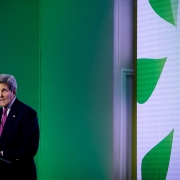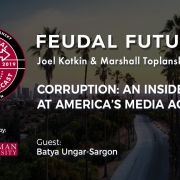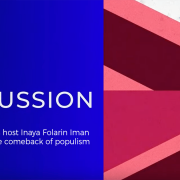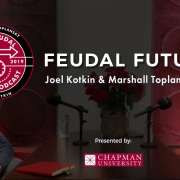Climate Policy: COVID on Steroids?
For most people around the world, the Covid-19 pandemic seems a great human tragedy, with deaths, bankruptcies, and fractured mental states. Yet for some, especially among the green Twitterati and in some policy shops, the pandemic presents a grand opportunity to enact permanent lockdowns on economic growth, population growth, and upward mobility.
Pointing to reductions in greenhouse gases due to the lockdowns, some see the pandemic’s wreckage of much of the economy – including the mass destruction of businesses and family budgets – not as a plague of its own, but, as a British Climate Assembly put it, as a “test run” for a new climate-driven economy.
“We have an “incredible responsibility” to “actually converge the solutions – at least the financial solutions – to coronavirus to the financial solutions for climate,” hyperbolized former UN Climate Chief and UN Paris pact architect Christiana Figueres, “because what we cannot afford to do is to jump out of the frying pan of Covid and into the raging fire of climate change.”
President Donald Trump may have been responsible for the vaccine success of Operation Warp Speed, but now his fast-track approach, ironically, is being adopted by climate campaigners in a drive to change our entire economy in short order. After all, they argue, the lockdowns demonstrated that governments can impose without constitutional constraint virtually any restrictions to address a perceived crisis. And the pandemic, by killing much of the economy – particularly travel – temporarily succeeded in reducing greenhouse gases by as much as 7 percent worldwide and 12 percent in the U.S.
The pandemic has also generated a social crisis, with its effects being felt disproportionately by the poor and working class in virtually all countries. It has depressed further the already historically low fertility rate throughout much of the world, including in the two remaining superpowers, China and the U.S. Covid, suggests a recent study by Brookings, has accounted for a half million fewer births in America alone.
Death to people – one way or another
In a sense, the call for semi-permanent lockdowns reflects deep-seated ambitions long nurtured in the green movement. The idea of limiting family life has been central to the environmental movement for a generation, at least since the days of Paul Ehrlich’s Population Bomb (1968) , which suggested, among other proposals, adding sterilant into the water supply. This approach was amplified four years later by the corporate-sponsored Club of Rome report, which sought to reduce consumption, economic expansion, and population growth to stave off mass starvation and social chaos.
Creating a sense of imminent crisis – just as in the justification for lockdowns – has long been critical to the propagation of environmental gospel, as longtime green campaigner Michael Shellenberger amply demonstrates in his new book, Apocalypse Never. Many of the predictions made by Ehrlich and the Club of Rome proved to be at best exaggerations, as resources did not wear out as predicted and mass starvation has been reduced dramatically since the 1960s.
Perhaps the one thing some greens may not like about the pandemic is that it was not lethal enough. The late Jacques Cousteau, for example, believed that curing viruses presented “enormous problems.” No longer, he complained, could epidemics compensate for excess births over deaths. Admitting that it was “terrible to have to say this,” he suggested stabilizing world population by eliminating 350,000 people per day. “This is so horrible to contemplate that we shouldn’t even say it” – but Cousteau said it. These are not the views of a lunatic fringe. Former National Park Service biologist David M. Graber deemed humans “a plague upon ourselves” that needs to be culled.
The political dilemma
The big problem, of course, lies with selling the agenda of permanent lockdowns, as well as advocating against human existence. The pandemic represented arguably a clear and present danger, though there is room for debate on how best to deal with it. In contrast, the climate “crisis” has been warned about for years, often in hyperbolic terms; however serious the problem, it certainly does not possess anything like the immediacy of the pandemic, or, for that matter, the economic and social devastation left in the pandemic’s wake.
Read the rest of this piece at Real Clear Politics.
Joel Kotkin is the author of The Coming of Neo-Feudalism: A Warning to the Global Middle Class. He is the Presidential Fellow in Urban Futures at Chapman University and Executive Director for Urban Reform Institute. Learn more at joelkotkin.com and follow him on Twitter @joelkotkin.
Homepage photo credit: COPPARIS2015 via Flickr under Public Domain.





 Ted Eytan, used under CC 2,0 License
Ted Eytan, used under CC 2,0 License


